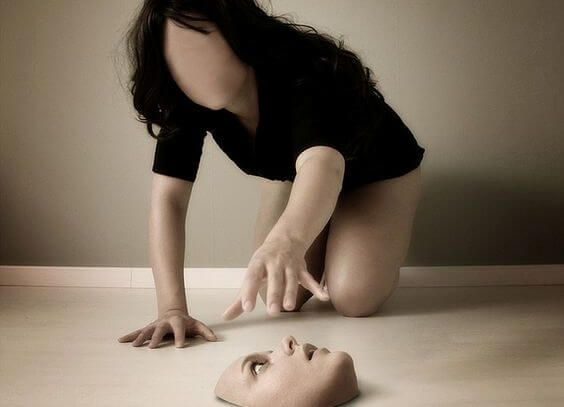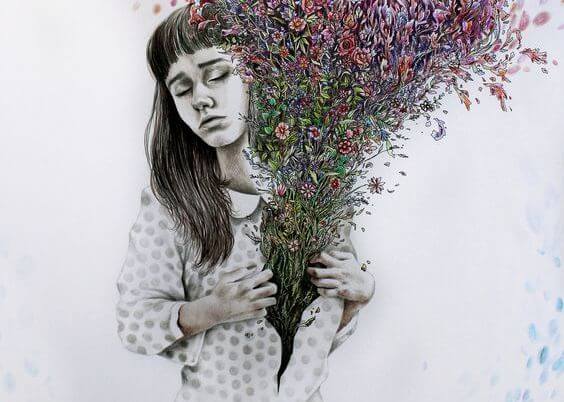Having a Mental Illness Doesn't Make Me a Violent Person

Mental illness doesn’t indicate violence. Perhaps it’s a lack of knowledge about mental illnesses that provokes fear and causes us to distance ourselves from people who need us. Like everyone else, they can get angry, but that’s not necessarily a result of their illness, nor does it necessarily identify someone as violent.
I’m not a violent person, I just feel misunderstood and powerless.
Sadly, it’s always been thought that there’s a strong link between mental illness and violence. So much so, that there is widespread discrimination and rejection towards people who suffer from mental disorders. This has unfortunately created a huge stigma surrounding mental illness.
The wide range of mental illnesses
When we think about mental illness, the most serious disorders come to mind, like psychopathy, schizophrenia, and borderline personality disorder. But we don’t realize that many disorders are much more common, such as anxiety disorders and eating disorders.

So what’s going on? Why do we consider mentally ill people to be violent? The answer is found in the violent episodes that you hear about. Think of borderline personality disorder, for example.
In this case, the person can live a normal life, but they can respond to certain situations with violence. This happens mostly when their symptoms are not under control.
Responding violently to a situation doesn’t make them an aggressive person in general. It’s simply a reaction to a circumstance that they don’t know how to deal with because they have a problem.
This doesn’t mean that we have to be afraid of everybody who suffers from some type of mental illness, nor that this behavior is common among mentally ill people.
Ninety-eight percent of people who suffer from schizophrenia do not commit violent actions throughout their lives.
As we’ve said, the world of mental illness is quite broad, and not all of them manifest signs of violence. Anxiety disorders and depression are mental disorders that prevent the person from living a normal life.
Should we label these people as violent or crazy? Should we be afraid of them? No, we should never make generalizations in the field of mental disorders.

According to information published in journals like the Journal of the Spanish Neuropsychological Association and World Psychiatry, only 10% of people who suffer from mental illness are involved in some kind of criminal act. This is quite an illuminating fact.
I’m not violent, mental illness is just stigmatized
What’s clear about mental illnesses is that it’s quite stigmatized, but the question is why. All of the aforementioned factors come from our own culture. The stigma around mental illness is reinforced through books, history, and movies.
Also, the centers that treat these illnesses have traditionally been considered places that should be removed from society because their residents could be potentially dangerous.
It was thought (thankfully now less so) that psychiatric facilities contained people who could cause serious harm at any moment due to their lack of control.
The media portrays a less common but more negative reality, especially about mental illnesses. This creates an almost diabolical image of them, which results in a completely unfounded fear in society.
Let’s look at the example of Beth Thomas, a girl who suffered from abuse from her father since she was a child. This triggered a form of psychopathy in her.
The case of Beth shook up the world and frightened her parents and family members. Her problem was caused by something that she didn’t choose. Today, she has recovered and lives a normal life.
My mental illness doesn’t prevent me from living with you in society, nor is it a barrier against us working together. Your prejudice, on the other hand, is the only limit I’ve encountered.
Beth indeed displayed violent behaviors, but only towards her family. It’s rare to find this behavior aimed at society in general. It’s the people closest to the patient who are most affected. But except for her illness, she’s a person just like you and me, and there’s no reason to be afraid of her.

With all this in mind, being afraid of someone with a mental illness just means you’re looking at their disorder in the wrong way. Not all disorders present with violence, and not all violence is directed towards society.
Can you imagine suffering from a mental disorder and everyone avoiding you as if you had the plague, even though you weren’t a violent person? That would probably make your situation worse.
Therefore, having a deep understanding of mental illnesses is positive both for us and for those who suffer from them. We’ll never be able to help them if we don’t understand them.
This text is provided for informational purposes only and does not replace consultation with a professional. If in doubt, consult your specialist.








